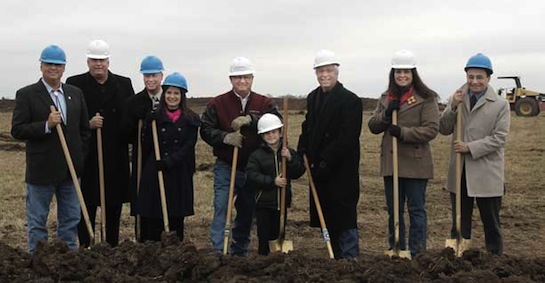Marc Benjamin, The Fresno Bee
The ongoing leadership dispute at the Picayune Rancheria of Chukchansi Indians has put the tribe at risk of defaulting on its bonds for Chukchansi Gold Resort & Casino, according to a lawsuit filed Tuesday in New York.
A $250.4 million agreement was reached last year when Chukchansi’s economic development authority restructured its financing after the tribe struggled to pay its debts.
But the tribal dispute over who controls the Coarsegold casino’s funds left the development authority unable to make its full May payment.
“The actions of the tribal parties and individual defendants endanger the collateral (casino revenue) and place the financial well-being of the casino in danger,” the suit filed by Wells Fargo Bank said.
The suit is against the tribe, its casino-affiliated corporations and commissions, competing tribal council factions, as well as three financial institutions that hold proceeds from the casino.
Wells Fargo holds the note for casino investors. The Chukchansi Economic Development Authority agreed to a 9.75% interest rate to restructure its debt.
The tribe was supposed to pay off $310 million in loans last year, but couldn’t make the payments. Instead, the tribe arranged an agreement with bondholders to restructure its debt to be due in 2020 and allow a longer-term payback for much of the remaining loan. The previous interest rate was 8%.
Wells Fargo declared itself “an innocent bystander” in the tribal dispute between two factions that contend they represent the tribe — one led by Reggie Lewis and the other by Nancy Ayala.
The bank’s lawyers said Wells Fargo has “done everything it can to resolve the issue consensually, but is left with no choice but to seek the court’s intervention” by filing the suit.
The Ayala group took control of the tribal business complex and casino after a February referendum the Lewis faction contends was unconstitutional.
The Lewis group then took control of a Rabobank account used to pay off casino debt. Rabobank officials didn’t recognize the Ayala group’s leadership and the Ayala group refuses to deposit money into the Rabobank account.
Since the last week of February, “presumably because of the disputes,” the tribe stopped depositing revenues and cash into the Rabobank accounts, which violates the agreement with Wells Fargo and the tribe’s bondholders, the suit said.
The Rabobank account is designed to use proceeds from the casino and make twice yearly bond payments of $11.93 million.
A partial payment was made in May, which constitutes “an event of default,” the lawsuit said.
Wells Fargo lawyers say money was available for the full payment if not for the ongoing factional dispute.
Under its agreement, the tribe is supposed to put casino revenue into the Rabobank account once each week, but can hold out $10 million in cash to run the casino, the suit said.
When the Lewis group gained control of the account, the Ayala faction opened accounts with other banks. Wells Fargo contends those are illegal under its agreement with the tribe.
Rabobank, which is named in the suit, froze its account, leading the Ayala group to move casino revenues in the casino “cage” instead of a bank, the suit contends.
The frozen account has led to employees getting paid in cash or by cash vouchers instead of check or direct deposit, adding security and internal cash concerns, the suit said.
“It is becoming increasingly difficult for Chukchansi Economic Development Authority to satisfy the daily cash needs of the casino, including payroll and the amounts required to maintain gaming operations,” the suit said.
Wells Fargo’s lawyers say the bank “takes no position with respect to which faction rightfully should be in control of the tribe and the tribal council,” the suit said. “But that does not change the fact that Chukchansi Economic Development Authority and the tribe have violated their agreements.”
Global Cash Access, which is named in the suit, is a company that reconciles all ATM cash dispensed at the casino. Wells Fargo estimates it holds $14 million in uncashed checks, the suit said.
The Rabobank account is supposed to have a minimum of about $14 million to make the twice yearly payment, tribe officials say. The suit said $10.55 million was in the account when the partial payment was made in May.
Wells Fargo also said the casino could lose its license because checks couldn’t clear through the Rabobank account and the casino was $551,250 in arrears to the California Gambling Control Commission.
Officials with both factions say they agree with the Wells Fargo action.
The Ayala group wants to get the Rabobank account out of the Lewis group’s hands.
“We have been operating the casino and taking care of day-to-day financial concerns,” said David Leibowitz, a spokesman for Ayala’s group. “The Lewis group has successfully sacrificed the biggest asset the tribe has and has ever had.”
But Lewis faction lawyer, Richard Verri, said the Ayala group can put money into the Rabobank account but refuses to because Rabobank recognizes the Lewis group.
“We have been waiting for this and pressuring (Wells Fargo) to get involved,” Verri said. “Now, the Ayala faction will be forced to make the deposits we are calling for.”
Read more here: http://www.fresnobee.com/2013/06/19/3351430/bank-tribal-dispute-puts-chukchansi.html#storylink=cpy



